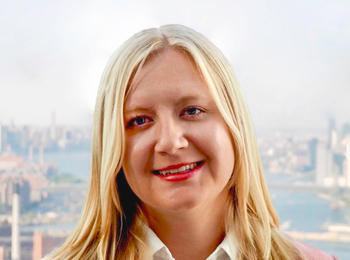Marta Millar

Friedrich-Meinecke-Institut
Global History
Visiting Scholar (October 2024 - January 2025 )
DAAD research grant
Marta Millar is a doctoral student in Modern European History at the City University of New York (CUNY) Graduate Center and a Graduate Teaching Fellow at Baruch College. Her research at the Freie Universität Berlin is funded by a DAAD short-term research grant. Her interests include modern Germany, southern Africa, colonialism, mass violence, and public history and memory in these contexts. Her research explores postcolonial relations between Germany and Namibia, with a specific focus on the role of universities and museums in shaping public memory of the colonial past. Millar has also previously held positions as the Program Manager of the University of Freiburg’s North American Liaison Office and a member of the German Center for Research and Innovation (DWIH) New York Advisory Board.
Millar received an M.A. in History from the CUNY Graduate Center (2023), and a Master of International Affairs as well as a B.A. in History, B.A. in International Politics, and B.A. in German from the Pennsylvania State University (2018).
My dissertation project, “The Uses of Colonial History: German-speaking Networks and Namibian Museum Development,” examines the history and influences of these networks between 1945-2022. I examine the distinct roles of German-speaking immigrants and Germany-based actors in the foundation of prominent Namibian museums, scientific societies, and cultural organizations, both before and after Namibian independence. In the first part of my dissertation, I consider the German-speaking community’s role in shaping Namibia’s heritage landscape before 1990.
The second part of my dissertation considers the political roles of Namibian museums since 1990. Today, there are sharp differences between how German institutions, Namibia’s German-speaking communities, and various ethnic and political groups within Namibia utilize colonial history for political aims. I specifically examine how Namibian institutions have engaged with German institutions to confront colonial legacies and address morally and politically intense issues like restitution and reparations in both the domestic and international political arenas. I am particularly interested in establishing how funding and knowledge-sharing relationships with German institutions have evolved as debates about restitution, reparations, and the genocide have progressed in the twenty-first century. German institutions have increasingly found it salutary to declare their formal commitment to “decolonization” and collaborative provenance research. Yet what remains understudied is how diverse Namibian actors perceived these initiatives. How did the novel directions taken so suddenly by German museums, after such stubborn resistance, relate to projects already underway in Namibia?
“Facing a ‘Difficult Heritage’: Decolonizing Baden-Württemberg’s Relationship with Namibia through Research, Restitution, and Repatriation,” German Politics and Society [Spring 2024, vol. 42, no.1].





